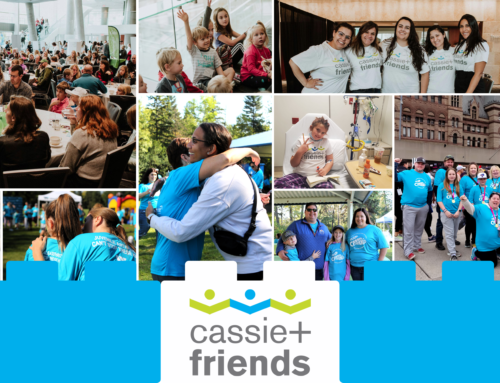Alison Legge: Navigating the workplace with a rheumatic disease

I was diagnosed with Juvenile Idiopathic Arthritis (JIA) at three years old. Having dealt with the disease with varying degrees of severity for the past 24 years, I can say one of the most challenging things to manage is other people’s perceptions of, and attitudes towards, my invisible illness.
At 17, I started living in chronic pain due to the total degeneration of both my jaw joints. Unfortunately, at the time, few surgeons performed jaw joint replacements, and the surgery was risky; there was no clear pain-free path forward. So I survived on a cocktail of medications, including an opiate patch and pills, multiple anti-depressants and benzodiazepines. Luckily, at 22, I found a surgeon and underwent a successful bilateral jaw joint replacement – and for the first time in years, I could have a drink with dinner and survive on 7-8 hours of sleep a night instead of 12-16.
However, even as my health improved dramatically, the realities of managing a chronic illness meant there were days I woke up feeling sick or weeks where I had multiple appointments, meaning things such as workplace flexibility were just as crucial as ever.
“one of the most challenging things to manage is other people’s perceptions of,
and attitudes towards, my invisible illness.”
In March 2021, I applied for a position based in London, England, at a company I had admired since high school but where I never thought I could land a role. During the entire interview process, I was transparent about my arthritis and the fact that a flexible work environment was of paramount importance to my success. I accepted the job once the company confirmed they were operating on a remote-first policy, and three months later, I moved myself and my two-year-old dog, Jovo, from North Vancouver, BC to London, England. I fell in love with London almost immediately, and soon after, I started loving my job. I was living a life that, five years ago, I never envisioned would be possible. I’ve joked that my time in London has consisted of me living my college years but with an income. I started to build a life here. I made friends that have become family, navigated and fought (and I mean FOUGHT) my way to proper care with the National Health Service (NHS), and most importantly, started to find myself and the things that make me happy. My health also continued to improve. I hadn’t had a flare since early 2021, and in September 2022, I started managing my anxiety and depression solely through exercise.
My life sometimes felt like a balancing act, but it was manageable because my job was flexible. Most weeks, I would be in the office 3-4 times a week for 4-5 hours a day. The flexibility allowed me to go to the gym at lunch, block out time for medical appointments without sharing too much detail, and work from anywhere, including hospital waiting rooms or home when I wasn’t feeling well. It gave me the space to excel in my role and get to know my colleagues while keeping my health at the forefront. I joined multiple employee resource groups, attended all team socials, even organizing some of them, and continuously hit my deadlines. Ultimately, it allowed me to find a proper work-life balance, making me a better, happier and healthier employee. The company also had a clear vision of Diversity, Equity, and Inclusion that I believed in so much that I recorded a 7-minute company-wide video on my experience living with an invisible illness for a series on disabilities. In the video, I even mentioned how crucial flexible work is for me.
Three months ago, I resigned right as I was about to be promoted because of how the company handled my medical accommodation request to their new Return-to-Office policy. While I know that my decision to leave was the right one, I struggle with the idea that my actions to speak publicly on the matter may come across as vindictive or petty. I was vocal about why I was leaving because if there is going to be change, there needs to be advocacy, and the sad reality is that this is a lot easier to do when both feet are out the door.
In November 2022, the CEO sent a company-wide email mandating all employees to return to the office for 80% of the work week. From the get-go, I voiced my concerns to my manager and director, and they both assured me that there would be a medical exception process and it would just be a formality. However, the communication around how the process would work was unclear and inconsistent based on who I spoke to or what I read. I didn’t know how much information I was required to share or who I would be sharing it with, but I applied anyway. In my application, I asked for 50% in the office, citing frequent doctor’s appointments (between February and March, I had 20+ appointments) and the unpredictability of my illness. I also included the link to the video with a transcript that I had recorded just eight months prior.
I didn’t get a response for six weeks, even after I sent multiple follow-ups. Finally, HR informed me that I was required to meet with them to ‘brainstorm potential solutions on how [the company] can best reasonably accommodate [my] needs.’ Following the discussion, ‘[HR] will evaluate this in consultation with the appropriate team to determine whether these options are reasonable.’ Upon receiving that email, my anxiety skyrocketed, but I also felt hurt. For the past 18 months, I had shown up and done my job well. However, as I went through this process, I realized that no matter what I did or how I showed up, it wouldn’t be enough because I could never hit the arbitrary attendance policy. After multiple meetings with HR, they gave me the following two options: I could exercise my right to request flexible work adjustments as required by UK law, or I could continue the medical accommodation process which would require me to meet with an occupational health specialist or share my doctor’s contact information and consent to HR contacting them directly.
When I said I would go with the former option, HR pushed back, telling me that the medical accommodation process was there to ensure I had options as well as get insight from a medical professional so that HR didn’t “miss anything.” I continuously tried to tell them that they were missing the entire point, that I have managed this chronic illness successfully for 24 years and that an occupational therapist with no insight into my medical history or condition would be unable to give them more information than I already had. I even volunteered to provide them with my medical certificates, to which they responded, we aren’t qualified to handle that information. Throughout the entire process, I kept trying to provide feedback to whoever would listen: this process is incredibly dehumanising and completely ignores individuality. Everyone kept telling me it wasn’t personal, that my exception would go through as long as I followed the process, but they didn’t understand that there is nothing more personal to me than my health. I have straddled the line between being too sick and not sick enough my entire life. Doctors, including rheumatologists, have accused me of making up pain or symptoms for attention, and teachers and friends have accused me of using my arthritis as an excuse. Both have led to health-related imposter syndrome, which has caused me to question my pain or avoid telling people just how bad things are for fear they will think I’m lying. I’ve spent so much time fighting for appropriate care while needing to go the extra mile to prove that being physically absent doesn’t make me any less capable.
In the meantime, my health started to deteriorate. My arthritis flared for the first time in two years; I developed an infection that required antibiotics, and I was burning through my sick days due to stress. While I have no qualms about sharing my experience living with arthritis and have made a conscious decision to be transparent with all my employers, I’m very selective in how, what and when I choose to share, conscious not to let my illness define me. HR kept telling me that this process was meant to empower me and make it feel like I had options. Instead, it left me feeling powerless, and once again, I was in a position where I had to prove I was sick enough to warrant an exception but not sick enough to no longer be capable of doing my job. I felt like the burden was on me to prove I was actually sick, leading me to believe there was no space for someone like me who doesn’t necessarily look the part. I know from experience that the dichotomy of someone who can’t be in the office for 8 hours but can still socialise outside work or go to the gym is tough to understand. The fact that I didn’t miss deadlines or was a top performer wouldn’t matter if I couldn’t be in the office 32 hours a week.
As this was all playing out, I started to explore other opportunities – a daunting task given the current job market in the tech sector. When I started interviewing, I was incredibly clear from the beginning as to why I was leaving: I needed a flexible workplace, and I wasn’t willing to hand over my medical records to get it. I soon realized that so many great companies support flexible work and won’t make someone jump through hoops to get it because they want employees who will do good work.
I also started to understand my worth and that I would be okay even in the current job market. At the end of January, I came across a posting for a job at a company I was genuinely excited about. When I interviewed with the hiring manager, he told me he didn’t care how or where I got my work done as long as it got done. I didn’t disclose my arthritis directly, but I did tell him that my health would always come first; he understood immediately and stressed the importance of work-life balance. Two weeks later, I accepted a job as a Senior Data Specialist at the LEGO Group. The following week, I was told my right to flexible work had been granted, and as I handed in my notice, my promotion had gone through. Ultimately, it didn’t matter. No amount of money or change in job title would have left me feeling safe enough to stay or that I had a future there. As I was leaving, I met with the VP of Diversity, Equity and Inclusion and my director to share how this process had led to my resignation and that if the company cares about their people, they needed to fix this.
I wish I had more answers. I wish I could say that leaving the way I did changed the company policy or culture. I wish I had the confidence to say all this before quitting and the strength to stay and fight for myself and those that will come after me. But going through this made me question everything from my self-worth to my competence, and no job is worth that. So if I had to share one thing I learned, it’s that my health has to come first and that no job, no matter the pay or the title, should put that in jeopardy.
About Alison:
Alison is passionate about sharing her experiences growing up with juvenile idiopathic arthritis to help youth and their families living with rheumatic diseases. Born in Vancouver, BC, she obtained her bachelor’s in computer science and applied math from the University of Oregon in 2018. She returned to Vancouver for a few years before relocating to London, England in 2021 where she now works as a Senior Data Specialist at the LEGO Group. In her spare time, Alison can be found on the golf course, curled up on the floor reading with her dog, Jovo, or exploring all the London’s pub scene has to offer.
Alison’s powerful story and experience navigating work with JA was recently featured in the Vancouver publication, the Tyee.










Leave A Comment